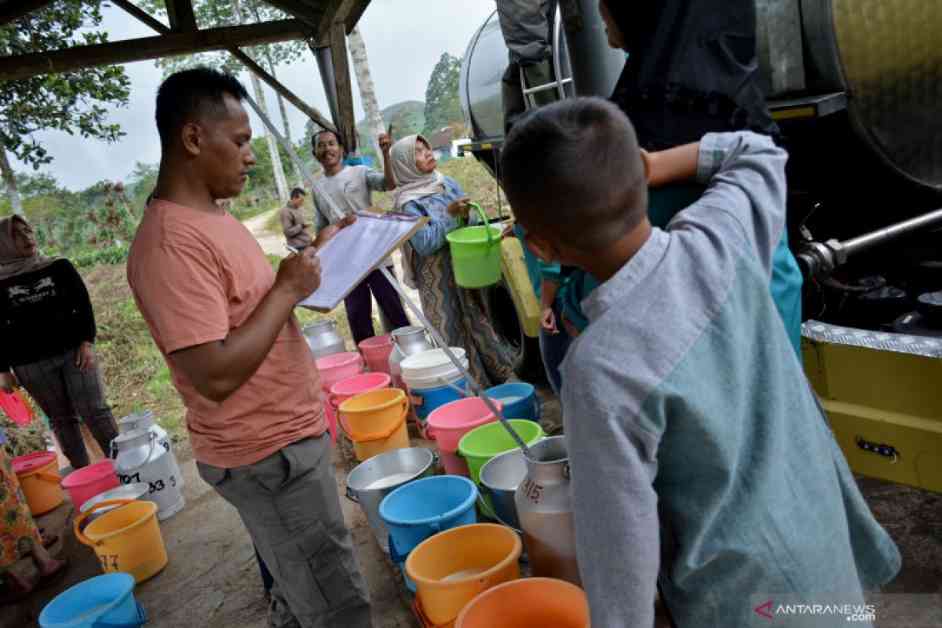Indonesia’s Village Cooperative Initiative: Enhancing Agricultural Efficiency
In a recent development, the Indonesian government has announced plans to introduce village cooperatives aimed at streamlining the distribution of local agricultural products directly to consumers. This initiative, spearheaded by Coordinating Minister for Food Zulkifli Hasan, is set to revolutionize the way farm goods are absorbed and distributed within the country.
During a limited meeting convened by President Prabowo Subianto, Hasan revealed that the government intends to establish these cooperatives, known as Red and White cooperatives, in up to 80,000 villages across Indonesia. The funding for this ambitious project will be drawn from the existing village funds, with each village receiving an annual allocation of Rp1 billion (approximately US$61,000) for this purpose.
To ensure the successful implementation of these cooperatives, each village will require a budget ranging from Rp3 billion to Rp5 billion for the construction and development of the necessary infrastructure. Hasan emphasized that the State Bank Association (Himbara) will play a crucial role in providing initial funding, which villages can repay in installments over a period of three to five years.
Minister of Cooperatives Budi Arie Setiadi outlined three primary models for developing these cooperatives: establishing new cooperatives, revitalizing existing ones, and expanding cooperative networks. Setiadi also highlighted that approximately 64,000 farmer groups are poised to form cooperatives, paving the way for a more integrated agricultural and food distribution system at the village level.
“The establishment of the Red and White village cooperatives will effectively disrupt the lengthy distribution chain that has been detrimental to both consumers and producers, ultimately resulting in more affordable prices,” Setiadi affirmed.
Empowering Local Communities through Cooperative Networks
The introduction of village cooperatives not only promises to enhance the efficiency of agricultural product distribution but also holds the potential to empower local communities across Indonesia. By establishing these cooperatives at the grassroots level, the government aims to create a direct link between farmers and consumers, fostering a sense of self-sufficiency and economic stability within rural areas.
Expert Insights: Dr. Maria Wibowo, an agricultural economist, believes that the implementation of village cooperatives is a significant step towards achieving food security and economic prosperity in Indonesia. She emphasizes the importance of integrating small-scale farmers into these cooperative networks to ensure equitable access to resources and market opportunities.
Witness Account: Siti, a local farmer from West Java, shares her excitement about the upcoming village cooperatives. She envisions a future where farmers like herself can directly benefit from a fairer distribution system, enabling them to earn a sustainable income while providing fresh produce to consumers at competitive prices.
Challenges and Opportunities in Cooperative Development
While the establishment of village cooperatives presents a promising solution to streamline agricultural supply chains, there are certain challenges that must be addressed to ensure their long-term success. Issues such as infrastructure development, financial management, and cooperative governance will require careful planning and coordination to overcome.
Expert Insights: Prof. Adi Pratama, a cooperative management specialist, underscores the importance of providing comprehensive training and support to cooperative members to build their capacity in governance and financial management. He highlights the need for ongoing monitoring and evaluation to track the performance of these cooperatives and address any potential challenges proactively.
In conclusion, the initiative to establish village cooperatives in Indonesia marks a significant milestone in the country’s efforts to promote sustainable agriculture and rural development. By fostering closer ties between farmers and consumers, these cooperatives have the potential to create a more resilient and equitable food system that benefits all stakeholders involved. The road ahead may be fraught with challenges, but the promise of a more efficient and inclusive agricultural sector makes this endeavor a worthwhile pursuit.






















